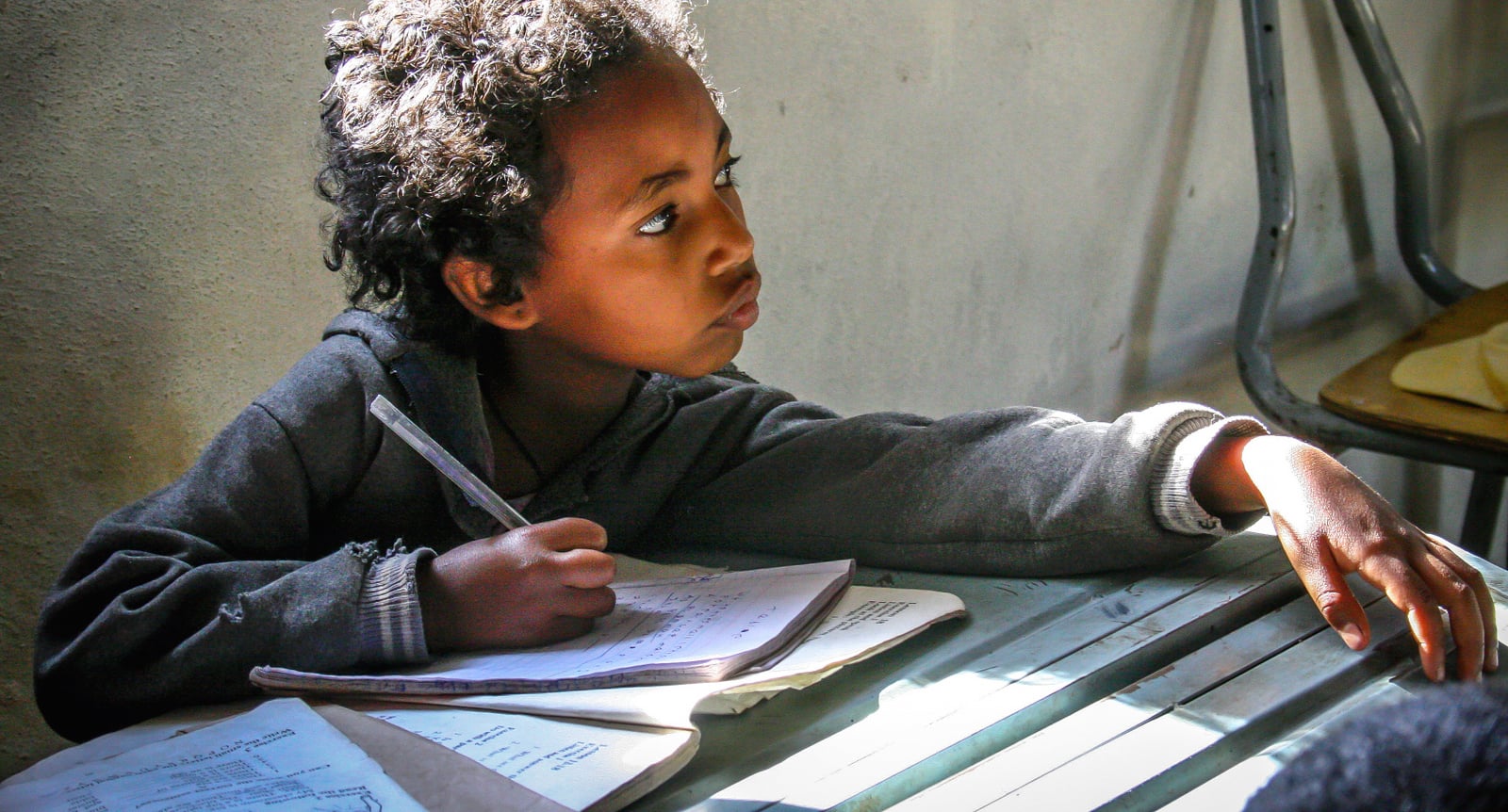Children in Ethiopia deserve an education – just like anywhere else
4,820,166 children are out of education in Ethiopia. That’s nearly a quarter of all school-age children in the country – and it’s completely unacceptable. The quality of education available to those who do attend school is often poor quality, with under-trained and under-supported teaching staff, poor-quality classrooms, a lack of resources and more.
Education Changes Lives – meaning wealthier, healthier and stronger communities
Education is in inextricably linked to giving people that vital helping hand to pull them out of poverty. We want to see these positive changes continuing in Ethiopia – confident, happy children equipped with the skills and knowledge to tackle the challenges life throws at everyone of us.

